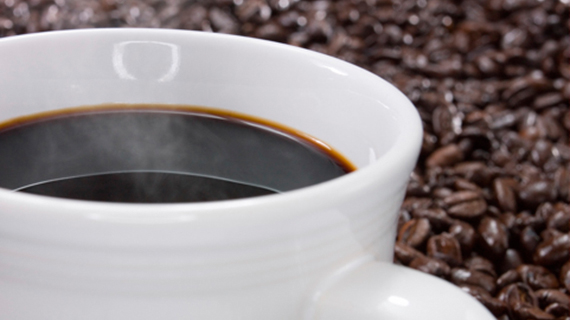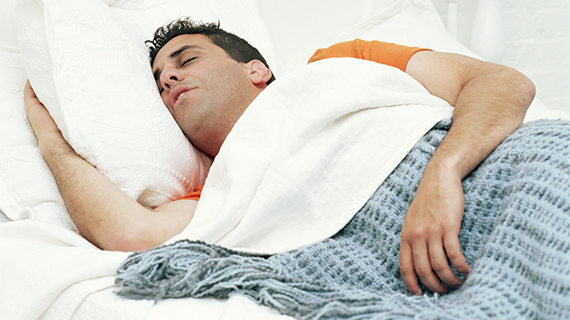Adrenal Addict vs. Adrenal Fatigue

Living in big cities has its rewards and downsides. For many city workers, juggling between work and private life is a daily challenge. Some people try to avoid it while some exploits in because they love the adrenaline rush that comes with the endless meetings and harsh deadlines.
Are you one of these ‘adrenal addicts’? But as the years passed by, have you ever felt that the competition that has propelled you in the past is wearing you down? Do you have any of the following symptoms?
- Morning fatigue, difficulty getting yourself out of bed
- Afternoon low, needs afternoon nap
- Resists going to bed although you’re sleepy
- You feel like you work best at night time
- Feels dizzy when changing positions (bending down to standing up)
- Salt and sugar craving
- Severe pre-mentrual symptoms (PMS)
- Frequent allergies
- Constipation
- Depression
- Difficult losing weight although you’re on a diet
- Feels ‘better’ when you have a bite
- Dry skin
- Frequent indigestion
- Irritable bowel

If you have more than 5 symptoms listed above, it’s very likely that you have a condition called ‘adrenal fatigue’. Adrenal fatigue is a stress-related medical condition that is affecting the majority of the working population nowadays. Even with a thorough annual check-up, it will not be detected because to diagnose this condition, a hormone panel testing is needed.
The two main adrenal hormones that need to be tested for are cortisol and DHEA (Dehydroepiandrosterone). Maintaining the ratio between cortisol and DHEA is the key to fighting adrenal fatigue.
What is Cortisol?
Cortisol is a “stress” hormone that is essential to life. It keeps the heart beating, normalize your blood pressure, fights infection, and makes you feel energetic. It’s similar to adrenaline, the hormone that makes you feel alert during exams, exercise or stressful situation. However, too much of cortisol is not good because it is a “catabolic” hormone, meaning it speeds up aging. Think of a friend who works all day and night and doesn’t get enough sleep. She or he will most likely have a very poor-looking skin and feels tired all the time. At the same time, too little of cortisol is not good. You will not have energy to get out of bed or do anything with low morning cortisol.
What is DHEA?
DHEA is a sex hormone and a very important “anti-stress” hormone that helps combat stress, burns fat and safeguard your immune system. It also functions as a precursor hormone for the male sex hormone, testosterone, and female sex hormone, estrogen. Therefore, it also has a crucial role in maintain stamina and libido. However as we all ‘age’ and become bombarded by every stress, DHEA level start to decline as well as our energy level. DHEA is an “anabolic” hormone which means it helps delays aging and speeds up repair. Therefore, the higher the DHEA level, the better the outcome. .
In summary, cortisol and DHEA have to be in a balanced ratio.
How to treat adrenal fatigue?
- Get a good sleep every night. Go to bed no later than 10-11PM.
- Eat breakfast before 10AM (because after 10 AM, morning cortisol will drop and you will feel worse. Cortisol become balanced with sugar intake)
- Eat healthy snacks between meals e.g fruits that are low in sugar ( all the berries, red apples, green apples, etc)mixed nuts, dried unsweetened fruits,dark chocolate (not milk chocolate). This will normalize your blood sugar and your cortisol level throughout the day
- Keep your cardio exercise at moderate level. Too much exercise can make your adrenal fatigue worse. Exercise every other day so that your body have time to rest
- Reduce stress. Find a hobby or do some travelling to help take your mind off work
- Many vitamins and supplements have been shown to reduce the severity of adrenal fatigue such as Ashwagandha (Indian ginseng), L-theanine ( found in green tea), Phosphatidylserine, Vitamin C, Vitamin B3, Vitamin B5 and Vitamin B6.
Pavinee Maneepairoj, MD
Reference
- Hertogue, Thierry. The Hormone Handbook 2nd Edition Paperback – 2010
- Afr J Tradit Complement Altern Med. 2011;8 (5 Suppl):208-13
- Br J Pharmacol. 2005 Apr; 1414 (7):961-71
- J Ethnopharmacol. 2001 Jan; 74(1): 1-6
- J Herb Pharmacother. 2006;6(2):21-30
- Nat Med. 2006 Aug;12(8):939-44
- Neuroreport.2000 Jun 26; 11(9): 1981-5
- Phytomedicine. 2000 Dec; 7 (6): 463-9
- Psychol Med. 2000 May;30(3):669-78
